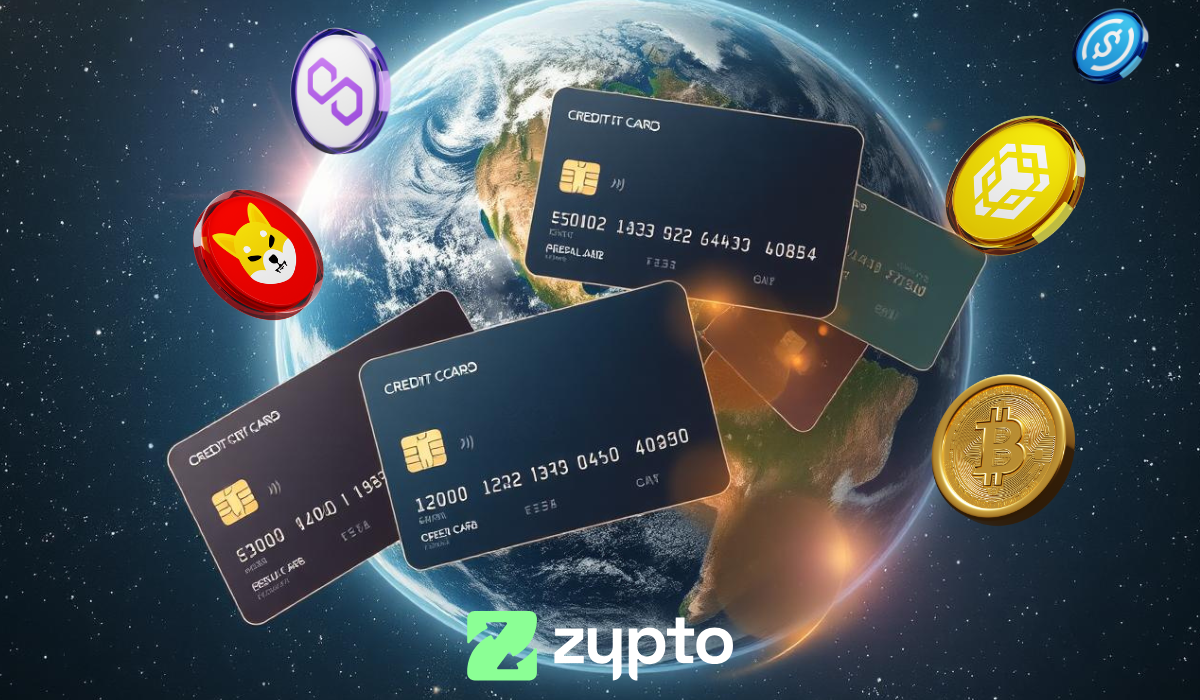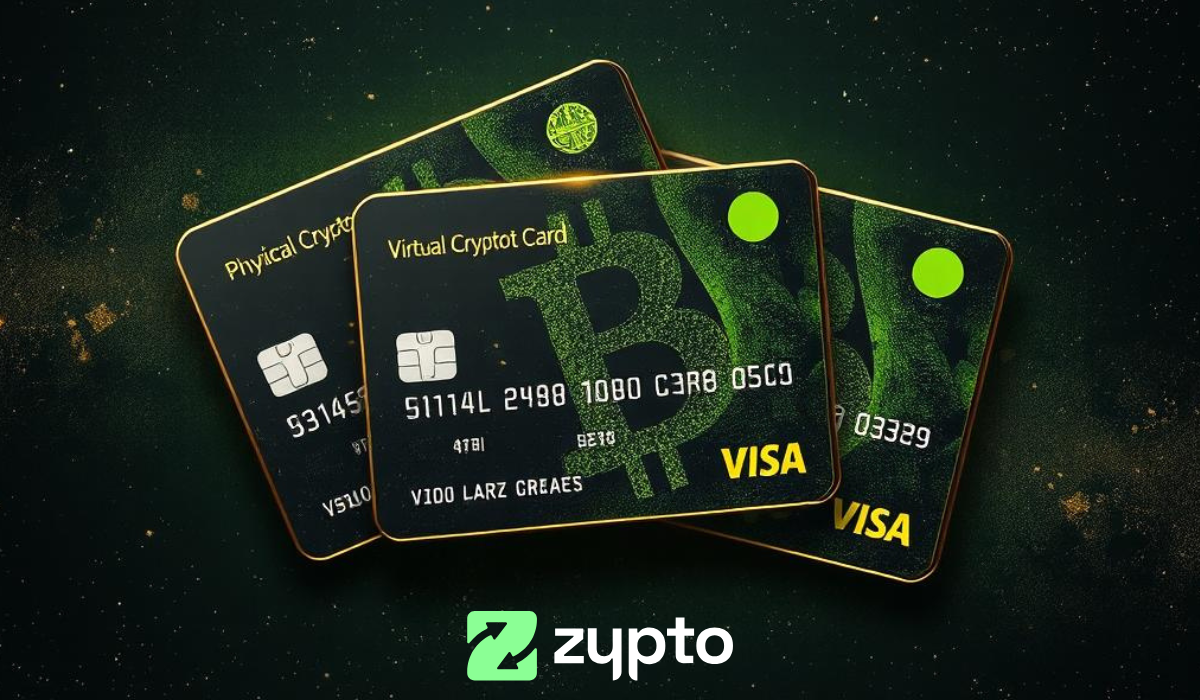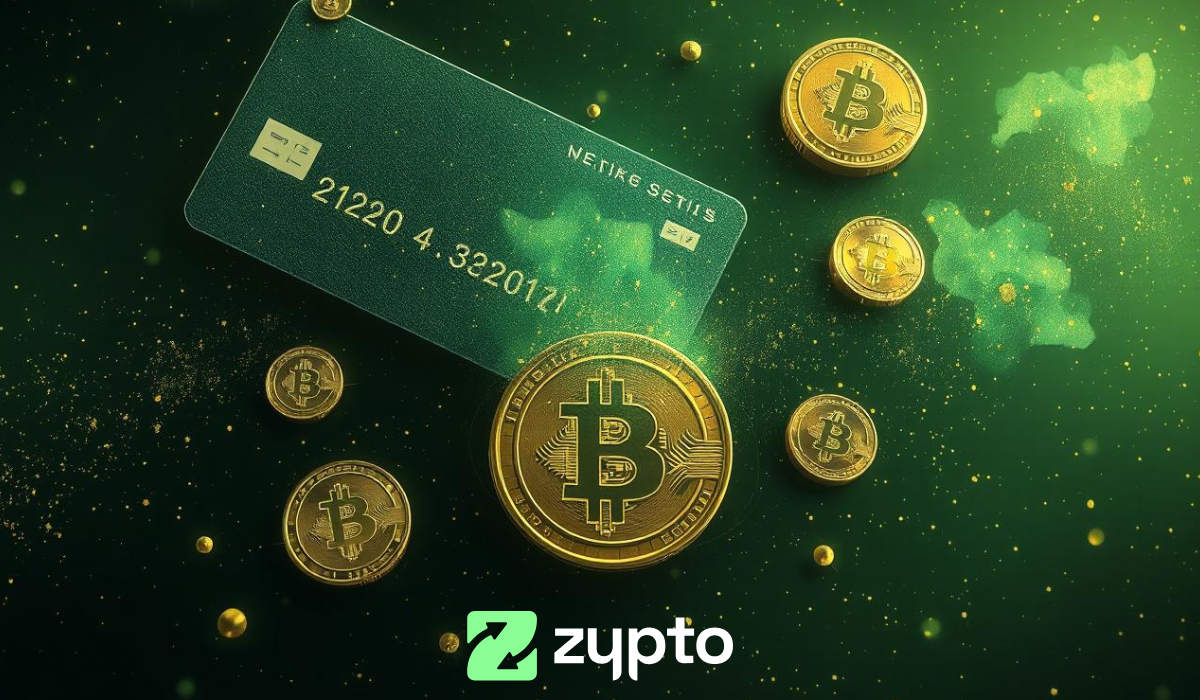If you’ve ever wondered “what is Ethereum”? and how it differs from Bitcoin, you are not alone. Though Bitcoin retains the industry’s largest market value, we cannot talk about market adoption and the exponential growth of the blockchain network without ascribing credits to Ethereum.
Ethereum is undeniably the largest, most established open-ended, and decentralized software platform. As of 2024, the Ethereum ecosystem has over 4,000 dApps, 53+ million smart contracts, and 96+ million accounts with an Ether (ETH) balance! What a blast!
Beyond crypto tokens, Ethereum empowers developers to build and adopt blockchain applications (dApps) seamlessly. In this article we looked into “what is Ethereum”, how Ethereum differs from Bitcoin, its smart contracts functionality, and its overview.
What is Ethereum? How Does it Work?
Most people recognize Ethereum because of its cryptocurrency Ether, however, Ethereum is not like every other currency.
At its core, it is a blockchain-based software platform that developers can build decentralized applications, from games, and marketplaces to innovative financial tools. Decentralized applications(Dapps) are software built on blockchain technology.
Before Ethereum, if you wanted to build blockchain applications you would need solid rooting in coding, mathematics, and cryptography, not to mention significant time and resources. But with the inception of Ethereum, anyone can build applications that “run” on the blockchain directly like software “runs” on a computer.
To accomplish this, Ethereum brings its open-source programming language that runs on a blockchain.
In doing this, Ethereum has removed the early barrier to entry in creating decentralized applications. The ease of use has led to an explosion in the number of dApps being built, spanning various sectors, including; Defi, NFts, and the health sector. As of today, Ethereum boasts over 4,000 dApps.
How Does Ethereum Work?
We’ll never do justice to “what is Ethereum” without explaining how it works. Ethereum is built on the blockchain network. To understand how Ethereum works we need a grasp on how blockchain works. Blockchain is a cutting-edge technology that is based on two major principles – decentralization, and distributed public ledger (where transactions are verified and recorded).
Decentralization implies that the coordination or management of processes in the blockchain is open to all network members, as opposed to giving it to one central body. While distributed ledger means everyone participating in the Ethereum network gets an identical copy of its ledger, which allows them to see all past transactions.
The people participating in the Ethereum network are referred to as nodes. Nodes are responsible for validating transactional data sets on the Ethereum network. Validation is done through consensus mechanisms. For different networks of users to successfully maintain a network, there must be a protocol that keeps them in agreement, this is what consensus mechanism is all about.
Ethereum network uses the proof of Stake algorithm (PoS). PoS requires validators to stake their cryptocurrency as a form of collateral with the hopes of being selected to validate a transaction. Most times the more crypto a validator stakes, and the longer he stakes it for, the higher his chances of being selected to validate a block of transaction. If the transaction block has some inconsistencies or is fraudulent, validators are penalized by losing some of their stakes. However, for accurate transactions, validators get rewarded with Ether.
This brings us to the next piece of the puzzle; What is Ether? Is it a short form for Ethereum or something entirely different?
What is Ether?
If someone tells you they invested in Ethereum coin, they are most likely saying they have invested in ether. People often use the words Ethereum and Ether interchangeably, when in actuality they represent two different things. While Ethereum is a whole blockchain network, Ether operates similarly to Bitcoin.
It is the local crypto of the Ethereum network. It was created for settlement on the network. Anyone who wants to build a software application or program on the Ethereum network has to pay for the computing power and space required using Ether. It is also used as a gas fee for transactions within the Ethereum blockchain.

Ethereum vs Bitcoin; What is the Difference?
| Features | Ethereum | Bitcoin |
| Inception year | 2015 | 2009 |
| Founder | Vitalik Buterin | Satoshi Nakamoto |
| Cryptocurrency used | Ether | Bitcoin |
| Consensus mechanism | Proof-of-stake | Proof-of-work |
| Maximum supply | No fixed limit | Fixed supply of 21 million BTC |
| Block time/ transaction speed | 15 seconds | 10 minutes |
| Use case | Smart contracts & digital currency | Digital Currency |
Now let’s go beyond what is Ethereum and see how this cryptocurrency differs from the big fish, Bitcoin. You may want to read about Bitcoin in detail to make it easier for you to grasp their differences.
As the two giants holding up the crypto world, Ethereum and Bitcoin are often mentioned in close association. They both leverage the same decentralized ledger technology and have cryptocurrency relevance. However, this is pretty much where their similarities end.
Each of them represents different things and serves different purposes in the blockchain world. Think of Bitcoin as “digital gold”, a valuable asset with limited supply. Some People hold it for long-term value, and some others use it as a secure form of payment.
Then think of Ethereum as the innovation engine of the blockchain network. It is responsible for giving a programmable platform to the crypto world, making it super easy to adopt. And lastly, think of Ether, its local cryptocurrency as the oil that fuels activities on the blockchain.
Let’s take a look at more ways Ethereum and Bitcoin differ from each other.
The Inception
While the developer of Bitcoin remains a mysterious, pseudonymous entity, Satoshi Nakamoto, the concept of Ethereum was proposed by a then-19-year-old by the name of Vitalik Buterin. In his words, the goal for Ethereum is “A peer-to-peer network that can securely execute code provided by untrusted parties.” According to the Ethereum white paper, The initial intent of Ethereum is to create an alternative protocol for building decentralized applications.
Bitcoin on the other hand was built as a system of electronic cash people can access without needing to trust third parties like the central bank. Its purpose is to give a monetary value and be an alternative to modern banks. From this, we see a clear disparity between the two blockchain-based projects.
Also, even though the cryptocurrency of Ethereum is gaining wide adoption as a monetary entity, that wasn’t the original goal. It was created as a tender for settlement on the Ethereum network. However, due to its performance over time, investors have taken the cue to buy and hold it for future gains.
Creation Process
One key difference between Ethereum and Bitcoin is the creation process. Originally, both Bitcoin and Ethereum could be created through mining. Mining is what happens when new tokens are minted and rewarded to anyone who does a hard computing function and wins grounds to verify a block of transaction. This verification process is called “Proof-of-Work”.
However, in September 2022, Ethereum (ETH) transitioned to “Proof-of-Stake”. In PoS miners are replaced by validators. New coins are created when validators stake their coins in a bid to get a chance at being selected to verify transactions (and, thus get rewarded).
Contrast this with proof of work, where nodes use tremendous energy to compete with each other to be the first to verify blocks of data. Despite energy concerns, Bitcoin still maintains the proof of work mechanism, while it seeks to promote the use of a sustainable energy supply to carry out its creation.
Quantity of Supply
One of the biggest differences between Bitcoin and Ethereum is in the amount of supply of the cryptocurrency of the two. Bitcoin is limited to a fixed supply that will ever be in circulation, which is 21 million Bitcoin. But with Ether, there is no predefined limit. The currency can be created.
It is estimated that 18 million Ether coins are mined every year. Currently, the number of Ether coins in circulation is slated at over 120 million. Mind you, while the ether coin can be created, the Ethereum network deploys strong protocols to strike a balance between the Ether created and the ones burned out. This is to ensure security and largely prevent inflation.

Use Cases For Ethereum Blockchain
You’ve learned that the Ethereum blockchain is at the forefront of innovations in the blockchain world and the web3 because it allows users to create Blockchain-based applications and programs. Now let’s look at three well-known innovations that are thriving in the Ethereum network.
Defi
Defi, which is short for Decentralized finance, is a financial ecosystem that allows anyone with an Internet and crypto wallet to access financial services like trading, borrowing, lending, and asset control, without needing a central authority. A popular application of Defi is Dex, which is simply short for Decentralized exchanges like Bybit.
Non-Fungible Tokens (NFT)
NFTs are unique identifiers that serve to provide proof of ownership of digital assets, like artworks, collectibles, real estate, and in-game elements. It makes it possible for people to have the right to ownership of their assets so that they can trade them with another.
Smart Contracts
You cannot effectively talk about Ethereum without mentioning smart contracts. Ethereum offers an open-source platform for creating and deploying smart contracts. Smart contracts are simply a promising way to automate agreed-upon action when conditions are met, without the need for an intermediary. They are popularly called self-executing contracts; they just execute by themselves if all the terms of a transaction are met.
For example, a smart contract could release funds from a buyer to a seller only if the buyer receives the goods. Smart contracts have found adoption across various sectors. The global contracts market cap is predicted to witness significant growth thanks to the rising population and adoption of smart contracts across sectors of government like banking, supply chain, real estate, insurance, and healthcare.
DAOs(Decentralized Autonomous Organizations)
DAOs entail how decisions are made in an organization. Smart contracts enable Decentralised Autonomous Organizations (DAOs) on the blockchain, such that the rules guiding that organization can not be changed as it is embedded in code.
Ethereum Vs Bitcoin; which is better?
Both Ethereum and Bitcoin have areas where they shine the most. When it comes to long-term value stores, Bitcoin is first considered because of its fixed supply of 21 million. Bitcoin is very attractive for long-term investment. Ethereum on the other hand, is better in terms of innovation, and scaling blockchain usage. Also since there are lots of development and transactions going on in the Ethereum blockchain, it is rated high in terms of investment. So if you believe in the future of the blockchain world, keep your eye on Ethereum.
Furthermore, due to the exorbitant price rate of Bitcoin, people take investing in Ethereum as the next best alternate coin. Therefore, if you want to invest in a token considerably lower in rate than Bitcoin then ether may be a good option. But if you want to invest in a token with a proven track record that has a predictable market value, then you can stick to Bitcoin. However, keep in mind that the crypto market is very volatile and speculative. Therefore do your research before buying any coin.
Wrapping Up
Hopefully, this article has unraveled the mystery that Ethereum was to you by answering the question of what is Ethereum in detail. Ethereum is the second most popular crypto blockchain after Bitcoin and it’s the mother of blockchain inventions, including smart contracts and Defi.
Although both BTC and ETH have digital currency value, unlike Bitcoin, the primary aim of Ethereum is not to provide a monetary system. Ethereum’s key focus is hinged on providing a robust platform where people can develop systems that can enable secured movement of value. Bitcoin on the other hand is an alternative to regular modes of payment. It focuses on being a decentralized digital currency that permits individuals to send and receive value without the need for a central authority. Over time, it became a store of value, a “digital gold,” and a widespread means for preserving wealth.
Have anything to say to us? Let us know in the comments.
We almost live in a crypto world and so everyone wants to learn about and invest in crypto. However, understand that with this hype comes the barrage of scams and weird phenomena. If you ever need guidance, ensure to seek professional help.
At Zypto we seek to equip you with powerful tools to accelerate your ride in the crypto world. This includes sound, detailed crypto resources, innovative tools and professional guidance. Reach out and let the team know where to come in.

FAQs
Is Ethereum better than Bitcoin?
Whether Ethereum is better than Bitcoin depends on the criteria used.
Bitcoin is primarily a digital currency and store of value, while Ethereum is a platform for decentralized applications (dApps) and smart contracts.
How does Ethereum make money?
Ethereum itself doesn’t make money, but participants in the Ethereum network, such as miners or validators, earn rewards through transaction fees and block rewards.
Developers can also build and monetize applications on the Ethereum platform.
What is the point of owning Ethereum?
Owning Ethereum (ETH) allows you to participate in the Ethereum network, pay for transaction fees, interact with dApps, and potentially benefit from the appreciation of its value.
It also provides exposure to the broader decentralized finance (DeFi) ecosystem and other innovations built on the Ethereum platform.






























0 Comments